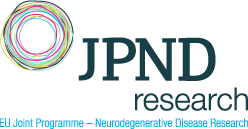SHAPE is short for Self-management and HeAlth Promotion in early-stage dementia with E-learning for carers. It is a multicentre, randomised, controlled trial. Below you will find adapted excerpts from the SHAPE-trial protocol.
Why SHAPE is important
The recent Lancet
The SHAPE intervention is designed to meet the needs of people with dementia to maintain independence and dignity, improve health behaviours, and live well with the disease in their own home for as long as possible. To achieve, we combine and adapt three existing interventions:
- Self-management intervention – Developed at the University of Exeter
- Health promotion intervention – Developed at the University of North Carolina, and adapted and applied at Stavanger University Hospital
- E-learning intervention – Developed at Neuroscience Research Australia (NeuRA)/ University of New South Wales (UNSW)
Read more about the components of the SHAPE trial
The project’s objectives
The primary objective is to evaluate how we can improve self-efficacy in people with dementia, by evaluating the effectiveness of the intervention compared to treatment as usual.
Secondary objectives are to evaluate the effectiveness of the SHAPE intervention in:
- Improving mood, well-being, quality of life and health outcomes in people with dementia
- Decreasing carer stress, general distress, knowledge about dementia and perceived access to support services
- Producing health behaviour changes based on self- and family report
- Estimate the costs and the cost-effectiveness of the self-management
Design of the SHAPE-trial
The study is a multi-site, single-randomised, controlled, single-blinded trial with parallel arms. The intervention arm is compared with treatment as usual. It will evaluate the effectiveness of the educational programme for people with dementia combined with e-learning for their care partners. The SHAPE trial will include people over the age of 65 with mild to moderate dementia. They participants must have a care partner who is willing to participate as well. Read the full list of participation criteria
Regulatory and ethical approvals
The study will be conducted in accordance with the recommendations for physicians involved in research on human subjects adopted by the 18th World Medical Assembly, Helsinki 1964 and later revisions. The project has got the appropriate ethical and regulatory approval prior to commencement in the respective countries. This includes approvals from the following:
- Regional Committees for Medical and Health Research Ethics (Norway)
- Health Regulation Authority and NHS Research Ethics Committee approval (UK)
- University of New South Wales Research Ethics Committee (Australia)
The chief investigator requires a copy of the regulatory and ethical approval letters before accepting participants into the study.
Who are responsible for the project?
- Coordinator: Norway, Ingelin
Testad , Stavanger University Hospital - Partner 2: Norway, Geir Selbæk, Norwegian National Advisory Unit on Ageing and Health
- Partner 3: United Kingdom, Linda Clare, University of Exeter
- Partner 4: United Kingdom, Martin Knapp, London School of Economics & Political Science
- Partner 5: Australia, Kaarin Anstey, University of New South Wales
External collaborators
- Slovenia, Marjeta Vodoncnik, Institute for Research, Education and Sustainable Development, Celje
- Austria, Stefanie Auer, Danube – University of Krems
Trial administration
Chief Investigator
Ingelin Testad
Co-investigators (PI)
Linda Clare
Trial Coordinators
Overall and Norwegian site coordinators
Martha Therese Gjestsen
UK site coordinators
Australian site coordinator
Sponsor
Funder
This is an EU Joint Programme – Neurodegenerative Disease Research project (JPND) JPND is the largest global research initiative aimed at tackling the challenge of neurodegenerative diseases. JPND aims to increase coordinated investment between participating countries in research aimed at finding causes, developing cures, and identifying appropriate ways to care for those with neurodegenerative diseases.
The project is supported through the following funding organisations under the aegis of JPND: Research Council Norway, Alzheimer’s Society (UK), National Health and Medical Research Council Australia.








